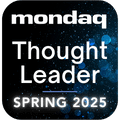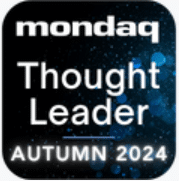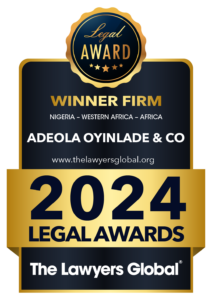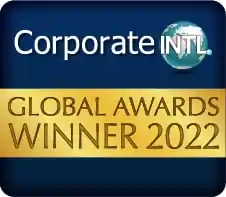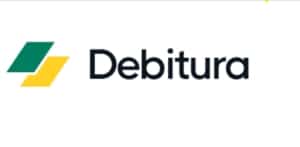Setting Up A Solar Business In Nigeria: A Complete Guide To Registration, Certification And Compliance
INTRODUCTION
Nigeria’s persistent energy crisis marked by frequent national grid failures, high electricity tariffs, and rising fuel costs has intensified the need for alternative power solutions. In response, the solar energy sector has experienced significant growth, emerging as a viable and increasingly attractive option for both residential and commercial consumers. This development has created substantial economic potential within the renewable energy space, offering opportunities for sustainable investment, job creation, and contributions to national GDP.
As demand for solar solutions continues to rise across various market segments, the sector presents a strategic entry point for entrepreneurs and investors seeking long-term value. However, participation in this industry requires strict adherence to regulatory protocols. Establishing a solar energy business in Nigeria involves compliance with corporate registration procedures, the acquisition of industry-specific certifications, and the observance of legal and environmental regulations. This guide provides a comprehensive overview of the processes involved in setting up a solar business in Nigeria, with a focus on registration, certification, and regulatory compliance.
REGULATORY STEPS FOR REGISTERING A SOLAR BUSINESS IN NIGERIA
Like all businesses operating in Nigeria, a solar energy company must undergo the standard corporate registration process prescribed under Nigerian law before commencing operations. This process is governed by the Corporate Affairs Commission (CAC), the statutory body responsible for the regulation and management of companies pursuant to the Companies and Allied Matters Act (CAMA) 2020.
- Determine the Appropriate Business Structure
Prospective business owners must first decide on the most suitable legal structure for their operations. Common options include Sole Proprietorship, Partnership, and Limited Liability Company (Private or Public). For solar businesses intending to engage in large-scale installations, partnerships, or those seeking investment, a Private Limited Liability Company (Ltd) is generally the most viable option due to its legal recognition, investor confidence, and scalability.
- Name Reservation and Availability Check
After selecting a business structure, the next step is to conduct a name availability check at the CAC. A legal practitioner can assist with this process. If the proposed name is approved, it will be reserved for 60 days, during which time the company must complete its registration.[1]
- Preparation and Submission of Incorporation Documents
The following documents must be prepared and submitted for incorporation:
- Form CAC 1 (Availability check Search and Reservation Result)
- Form CAC 1.1 (Application for Registration)
- Duly stamped Memorandum and Articles of Association (MEMART) detailing business objectives such as solar energy installation, sales, and consultancy
- Valid identification of directors, shareholders, and the company secretary
- Stamp duty receipts and evidence of payment to CAC
- Payment of Statutory Fees and Document Stamping
Applicable CAC registration fees must be paid based on the company’s share capital. The incorporation documents must also be stamped at the Federal Inland Revenue Service (FIRS) for taxation and validation purposes.
- Issuance of Certificate of Incorporation
Upon successful processing, the CAC issues a Certificate of Incorporation, which includes a unique RC (Registration Certificate) number. This serves as legal proof of the company’s existence and authorizes it to commence business operations in Nigeria.
- Foreign Participation
Foreign individuals or entities seeking to establish a solar business in Nigeria must fulfill additional regulatory requirements. These include:
- Registration with the Nigerian Investment Promotion Commission (NIPC)
- Obtaining a Business Permit from the Ministry of Interior
- Securing an Expatriate Quota for foreign staff
- Obtaining Resident Permits
OBTAINING AN IMPORT AND EXPORT LICENSE
Many solar energy components such as solar panels, inverters, batteries, and charge controllers are not manufactured locally and must be imported. Businesses must obtain the relevant import licenses and register with the Nigerian Customs Service through the Nigerian Trade Hub. Exporters of locally manufactured solar equipment must also obtain an export license. This involves obtaining a Tax Identification Number (TIN) and registering on the Nigerian Trade Hub portal.[2]
CERTIFICATION OF SOLAR PRODUCTS BY THE STANDARDS ORGANISATION OF NIGERIA (SON)
The Standards Organisation of Nigeria (SON) is the primary regulatory body tasked with standardizing and ensuring the quality of goods in Nigeria. Established under the SON Act No. 14 of 2015, its mandate includes developing standards for products, services, materials, and processes, as well as enforcing compliance.[3]
For businesses involved in manufacturing or importing solar products, obtaining SON certification is critical to ensure compliance with Nigerian Industrial Standards (NIS) and to guarantee the quality and safety of products.
- Mandatory Conformity Assessment Programme (MANCAP):
This program applies to locally manufactured products. It ensures compliance with NIS through product testing, quality control inspections, and factory evaluations. Businesses engaged in the assembly or production of solar panels, batteries, or related components must obtain MANCAP certification. This enhances credibility, facilitates access to funding, and enables participation in government or donor-funded projects.
Upon successful evaluation, SON issues a MANCAP certificate, which is valid for three years, subject to periodic compliance audits.[4] This certification not only legitimizes the business operations but also enhances the credibility of the solar products in the eyes of distributors, financiers, and end users, particularly in public procurement or donor-funded renewable energy projects.
- Standards Organisation of Nigeria Conformity Assessment Programme (SONCAP):
SONCAP is a mandatory scheme for imported products, ensuring they conform to applicable standards prior to entry into Nigeria. Under SONCAP, goods intended for import which are on the list of regulated products must undergo a products conformity assessment in their country of origin.[5]
Adhering to these certification processes not only facilitates compliance with Nigerian regulations but also enhances consumer confidence in the quality and safety of solar products available in the market.
APPLICATION PROCESS FOR NIGERIAN ELECTRICITY REGULATORY COMMISSION LICENSING
The commission issues licenses and authorizations to companies seeking to operate in the Nigerian electricity supply industry (NESI).[6]
To obtain a clearance certificate for generator or solar set importation, applicants must provide:
- Company name and equipment quantity
- Technical specifications including noise level (below 35 decibels), emissions control, make/model, origin, and purpose[7]
- CAC Certificate of Incorporation
- Three-year Tax Clearance Certificate
- VAT Registration Certificate
- SONCAP Certificate
- Environmental compliance evidence (e.g., NESREA certification)
- Commercial or pro forma invoice
The certificate is valid for six months and may be renewed for another six months and application for renewal of a certificate which has lapsed shall be within 30 days of the expiration of the initial certificate.[8]
The fees associated with obtaining the clearance certificate vary based on the size or capacity of the generators. For instance, as of recent guidance, units below 100 kVA attract a fee of ₦3,500 per unit, while those above 100 kVA incur a fee of ₦25,000 per unit.[9] The processing time for the certificate is not fixed and largely depends on how promptly and accurately the applicant submits the required documentation, as well as the Commission’s satisfaction with the overall application.
INCENTIVES AVAILABLE FOR SOLAR BUSINESSES IN NIGERIA
- Funding and Grants
- $500 Million Renewable Energy Fund: In partnership with a United Nations agency, Nigeria aims to mobilize $500 million to expand access to distributed renewable energy, including solar home systems and mini-grids. Entrepreneurs can benefit by positioning their businesses to qualify for technical assistance, grants, or concessional financing.[10]
- CBN Solar Intervention Fund: ₦140 billion low-interest loan facility for solar projects, targeting homes, MSMEs, and solar developers.
- Nigerian Electrification Project (NEP): Funded by the World Bank and AfDB, this initiative provides grants and financing for off-grid solar solutions.
- REA Solar Power Naija Program: Targeting 25 million Nigerians with solar power access. Offers grants and incentives to solar companies expanding in rural areas.
- Pioneer Status Incentive: Solar energy companies may qualify for tax holidays of up to five years under the Pioneer Status Incentive program. This applies to foreign investors and local firms setting up renewable energy projects.
- Import Duty Waivers on Solar Equipment: To lower equipment costs, the Nigerian government grants import duty exemptions (0%) on solar panels, batteries, inverters, and charge controllers.[11]
- Feed-In Tariffs: Approved in 2015, the feed-in tariff regulation encourages investment in solar and other renewable energy sources by guaranteeing fixed payments for electricity generated from renewable sources.[12]
CONCLUSION
Setting up a solar energy business in Nigeria offers tremendous opportunities for innovation, profitability, and social impact especially in a nation with such an urgent need for reliable electricity. From initial corporate registration and obtaining import licenses to achieving industry-standard certifications and leveraging government backed incentives, the solar sector offers a well-defined yet rewarding path for entrepreneurs and investors.
By adhering to regulatory frameworks, meeting quality standards, and capitalizing on available financial support, solar entrepreneurs can build resilient, future-proof businesses that help bridge Nigeria’s energy gap while contributing to sustainable development goals.
As the transition to clean energy accelerates, those who invest early armed with the right knowledge and compliance will be well-positioned to lead Nigeria’s renewable energy revolution.
Written by Felicia Ayeomoni for Adeola Oyinlade & Co
Email us: [email protected]
Telephone Number: +234 803 826 7683 / +234 802 686 0247
_________
Ranked as a top law firm in Nigeria, Adeola Oyinlade & Co provides legal services to national and multi-national companies and clients for their corporate and commercial law matters with specialty in renewable energy law. Our services have earned us the Nigeria Law Firm of the Year Award at the Lawyers Global 2024 Annual Legal Awards and the prestigious International Law Firm of the Year in Nigeria of Corporate INTL Global Awards for the years 2022, 2023, 2024 and 2025 (4 years in a row) among others.
[1] Section 32 (2) of the Companies and Allied Matters Act, 2020
[2] https://www.haul247.co/resources/blog/nigeria-import-export-license-what-is-it-and-how-do-i-get-it#:~:text=1.,food%20and%20drug%2Drelated%20products) accessed April 9, 2025.
[3] https://www.iso.org/member/1982.html? Accessed April 9, 2025.
[4] https://www.618bees.com/article/154-how-do-i-register-my-product-with-the-standards-organization-of-nigeria-son accessed April 9, 2025.
[5] https://www.sgs.com/en/-/media/sgscorp/documents/corporate/brochures/sgs-gis-pca-triptych-nigeria-a4-en-16-02.cdn.en.pdf?utm_source accessed April 9, 2025.
[6] https://nerc.gov.ng/resource-category/regulations/ accessed April 10, 2025.
[7] Guideline 7 of the Guidelines for Obtaining Clearance Certificate for the Importation of Generating Sets and Related Matters, see https://nairametrics.com/wp-content/uploads/2012/01/Guidelines_GenSet-Import-Clearance-Certificate_Final.pdf accessed April 10, 2025.
[8] Guideline 6 of the Guidelines for Obtaining Clearance Certificate for the Importation of Generating Sets and Related Matters, see https://nairametrics.com/wp-content/uploads/2012/01/Guidelines_GenSet-Import-Clearance-Certificate_Final.pdf accessed April 10, 2025.
[9] https://energydayng.com/2022/01/20/nerc-and-the-importation-of-generating-sets/?utm_source accessed April 10, 2025.
[10] https://www.power-technology.com/news/nigeria-un-distributed-renewable-energy/?cf-view accessed April 10, 2025.
[11] https://www.pvknowhow.com/nigerian-customs-declare-solar-panels-duty-free/#:~:text=The%20Nigeria%20Customs%20Service%20has%20reaffirmed%20that%20solar%20panels%20remain,work%20without%20additional%20financial%20burdens. Accessed April 10, 2025.
[12] Dugeri, Michael, Promotion of Renewable Energy in Nigeria Through Feed-In Tariff Schemes: A Legal Analysis (December 25, 2019). Available at SSRN: https://ssrn.com/abstract=3509510 or http://dx.doi.org/10.2139/ssrn.3509510 accessed April 10, 2025.


